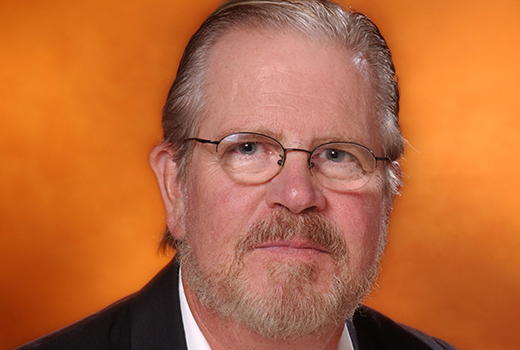Join us for The Philosophy of Animal Rights: A Way of Life or Religion?, this year's Annual Tom Regan Memorial Lecture, given by Cheryl Abbate. The respondent will be Dale Jamieson. The talk will be followed by a Q&A and is open to the general public as well as Harvard affiliates. A vegan lunch will be provided for those attending in person, and a Zoom webinar link can be found below.
Event Overview
The Brooks McCormick Jr. Animal Law & Policy Program at Harvard Law School is honored to be this year’s host of the Annual Tom Regan Memorial Lecture, which celebrates the life and thought of philosopher, animal advocate, and Culture & Animals Foundation (CAF) co-founder Tom Regan, who died in February 2017.
The lecture is delivered by a leading scholar of animals rights, and this year we are delighted to announce that Professor Cheryl Abbate will present: The Philosophy of Animal Rights: A Way of Life or Religion? The respondent will be Dale Jamieson, New York University’s Professor Emeritus of Environmental Studies; Director, Center for Environmental and Animal Protection; Affiliated Professor of Law, Medical Ethics, and Bioethics; Founding Director of Environmental Studies Program; and former Chair of the Environmental Studies Department, and Professor of Philosophy.
If you are unable to join us in person for this event, you can register in advance to join us by Zoom webinar.
About the Tom Regan Lecture
The Culture & Animals Foundation (CAF) instituted the Annual Tom Regan Memorial Lecture in order to celebrate the life and thought of philosopher, animal advocate, and CAF co-founder Tom Regan, who died in February 2017. The five previous lecturers have been: Carol J. Adams, Sherry F. Colb, Syl Ko, Kim Stallwood, and Charlotte Blattner.
About the Lecture
Is animal rights theory just a philosophy or does it contain a set of beliefs that are religious in nature, according to the standards of U.S. law? In this talk, Abbate will contend that the set of beliefs found within the philosophy of animal rights are religious in nature, insofar as they satisfy the “inclusion tests” of religion used by the courts and Title VII of the Civil Rights Act of 1964. In particular, she will discuss how the philosophy of animal rights: (1) addresses fundamental beliefs about animal (human and nonhuman) life, purpose, and death, (2) includes the belief that our moral reality, which includes respect for animals, transcends the “apparent world,” (3) is an ethical system that prescribes a particular way of treating and viewing other creatures, (4) provides a comprehensive set of ethical beliefs, which provide “answers” to most ethical problems and dilemmas that humans face, and (5) is centered upon a seminal text (The Case for Animal Rights) that specifies the tenets of the rights perspective and instructs “followers” to “propagate” those tenants to “non-believers.” And, as Abbate will demonstrate, one implication of this is that many ethical vegans and animal rights activists possess special legal entitlements when it comes to employment law, public accommodation law, and affirmative action policy. This talk will thus leave attendees questioning whether the U.S.’s unique enshrining of religious freedom in its Constitution as a means of affirming fundamental human rights also furthers animal rights.
About the Lecturer
Cheryl Abbate is an Assistant Professor of Philosophy at the University of Nevada, Las Vegas who specializes in theoretical and applied ethics, especially animal ethics. She created and teaches UNLV’s first animal-ethics course, which has a service-learning component. She also has  published over 30 academic pieces on the ethical treatment of animals, and her research can be found in leading philosophy journals, including Philosophical Studies, Utilitas, European Journal of Philosophy, Acta Analytica, Ethical Theory and Moral Practice, the Journal of Social Philosophy, Social Epistemology, and Social Theory and Practice.
published over 30 academic pieces on the ethical treatment of animals, and her research can be found in leading philosophy journals, including Philosophical Studies, Utilitas, European Journal of Philosophy, Acta Analytica, Ethical Theory and Moral Practice, the Journal of Social Philosophy, Social Epistemology, and Social Theory and Practice.
Dr. Abbate received her PhD in philosophy from the University of Colorado, Boulder in 2019 and is the co-director of the Society for the Study of Ethics and Animals, the founder of the Animal Ethics from the Margins Project, and an associate editor of Between the Species. She has published on topics pertaining to animal rights theory, veganism, moral responsibility for meat eating, the epistemology of meat eating, animal dignity, animal morality, insect sentience, abortion and animal rights, the defensive killing of animals, the ethics of letting cats roam outdoors, friendship and animals, animal sanctuaries, and the meaning that companion animals bring to our lives. Her most recent publication is as the co-editor of New Omnivorism and Strict Veganism: Critical Perspectives (Routledge).
About the Respondent
Dale Jamieson is Professor Emeritus of Environmental Studies; Director, Center for Environmental and Animal Protection; Affiliated Professor of Law, Medical Ethics, and Bioethics; Founding Director of Environmental Studies Program; and former Chair of the Environmental Studies Department, and Professor of Philosophy.
 His recent work concerns the complex relations between environmental and animal protection, especially in relation to food and conservation, with a special focus on China; the prospects for progressive consequentialism; and the nature and uses of love. Underlying all of this work is his ongoing concern with how to live in the Anthropocene, both as an individual actor and political agent.
His recent work concerns the complex relations between environmental and animal protection, especially in relation to food and conservation, with a special focus on China; the prospects for progressive consequentialism; and the nature and uses of love. Underlying all of this work is his ongoing concern with how to live in the Anthropocene, both as an individual actor and political agent.
He led the creation of the Department of Environmental Studies and the graduate program in Animal Studies at New York University. He has held visiting appointments at the National Center for Atmospheric Research, Cornell, Princeton, Stanford, Oregon, and Arizona State in the United States; Oxford University and Kings College London in the UK; Monash University and the University of the Sunshine Coast in Australia; and LUISS University in Italy. He is also a former member of the School of Social Sciences at the Institute for Advanced Study in Princeton. In 2017 he was Zurich Distinguished Visitor on Climate Change at the Bren School of Environmental Science and Management at the University of California at Santa Barbara. In 2016 he was awarded the Association of Environmental Studies and Sciences William R. Freudenburg Lifetime Achievement Award.
Jamieson is the author of Reason in a Dark Time: Why the Struggle to Stop Climate Change Failed–and What It Means For Our Future (Oxford, 2014), Ethics and the Environment: An Introduction (Cambridge, 2008; second edition due out in 2023), Morality’s Progress: Essays on Humans, Other Animals, and the Rest of Nature (Oxford, 2002), and most recently, Discerning Experts: The Practices of Scientific Assessment for Environmental Policy (Chicago, 2019), co-authored with Michael Oppenheimer, Naomi Oreskes and others. He is also the co-author of Love in the Anthropocene (OR, 2015), a collection of short stories and essays written with the novelist, Bonnie Nadzam, and the editor or co-editor of nine books. Jamieson has published more than one hundred articles and book chapters, is on the editorial boards of several journals, and his research has been funded by the National Science Foundation, the US Environmental Protection Agency, the National Endowment for the Humanities, the Office of Global Programs in the National Atmospheric and Aeronautics Administration, as well as private foundations.
About the Culture & Animals Foundation
Since its founding in 1985, the CAF has stood uniquely at the intersection of creativity and scholarship, dedicated to transforming society’s relationship with nonhuman animals. CAF’s hundreds of funded projects have explored the entire cultural language of animal rights—in the humanities and social sciences; in lectures, dissertations, books, and presentations; and through music, dance, film, photography, spoken word, poetry, and drama.
About the Animal Law & Policy Program
The Brooks McCormick Jr. Animal Law & Policy Program at Harvard Law School (ALPP) is committed to analyzing and improving the treatment of animals through the legal system. The Program engages with academics, students, practitioners, and decision-makers to foster discourse, facilitate scholarship, develop strategic solutions, and build innovative bridges between theory and practice in the rapidly evolving area of animal law and policy.

